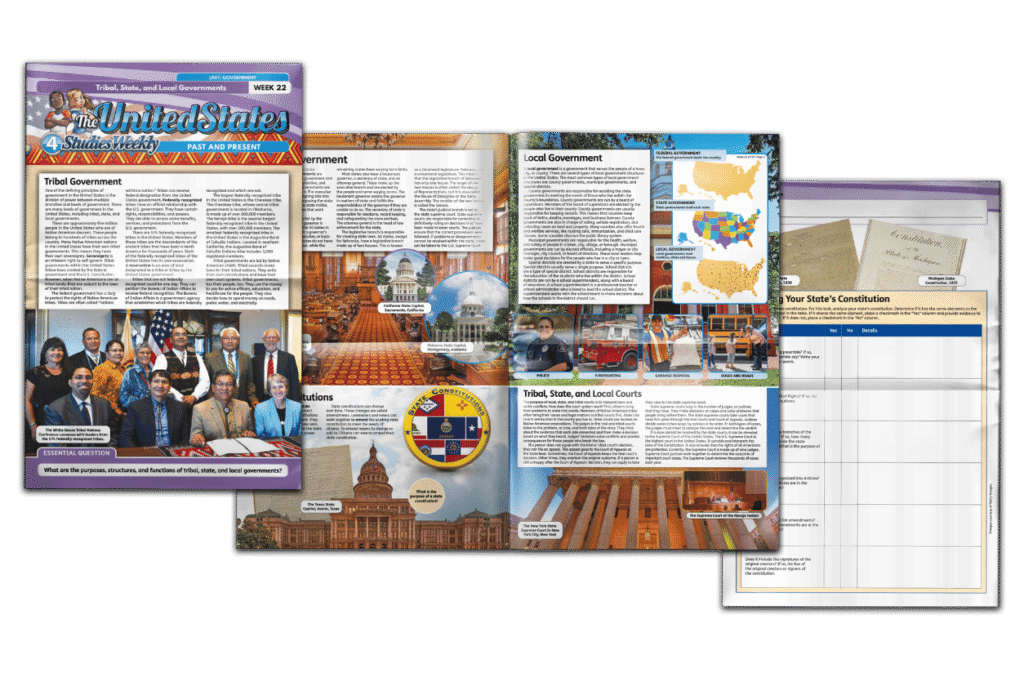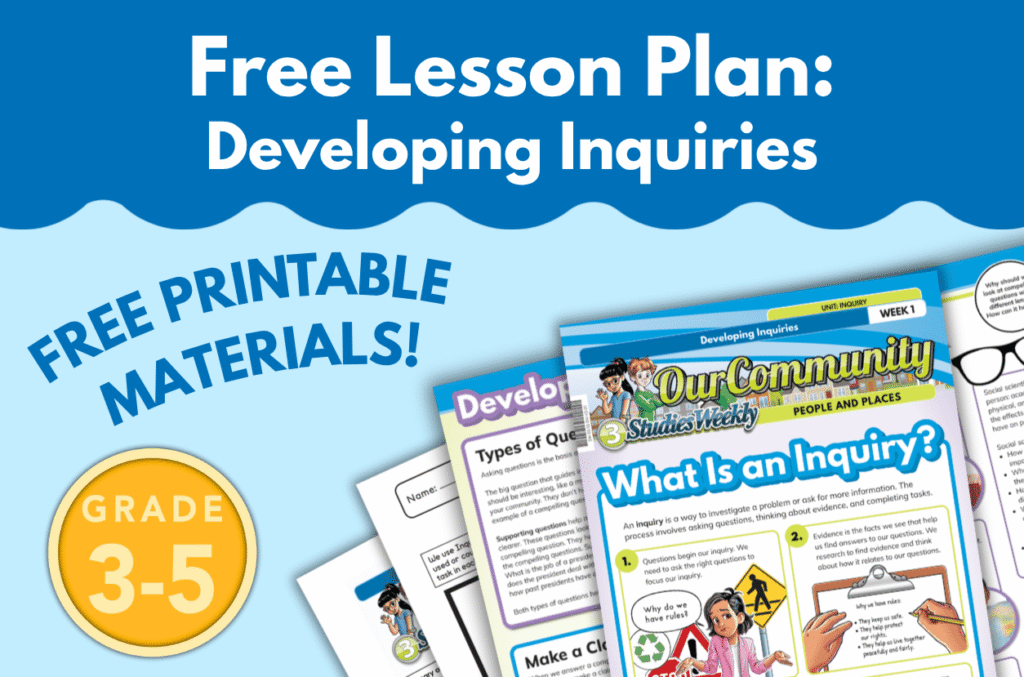
Empowering Students Through Inquiry: Studies Weekly’s Approach
When students learn to wonder, ask questions, lead their own research, analyze evidence, and make informed claims, amazing things happen. They start to see learning not as something that happens to them, but as something they actively participate in.
The Inquiry Design Model (IDM) is an instructional blueprint that teaches students how to take the lead role in their own learning. Lessons structured around inquiry teach students to tap into their natural curiosity, define and refine their questions, and search for answers.
Inquiry-based learning gives students ownership of their education. Rather than memorizing facts or passively listening to a lecture, students are invited to ask questions, gather evidence, and draw conclusions. It transforms lessons into investigations, and students into historians and scientists.
Whether a student is uncovering the effects of the Industrial Revolution or examining why a soccer ball moves when it is kicked, inquiry helps them connect ideas and communicate their thinking clearly.
How Studies Weekly Promotes Inquiry
Over the course of more than four decades in early education, we have seen the tremendous impact student-led learning has on building student engagement and driving deeper learning. Inquiry-driven learning through questioning, exploring, making claims, gathering evidence, and reasoning is at the core of all Studies Weekly programs.
Said best by a California teacher using Studies Weekly:
Teachers have enjoyed [Studies Weekly’s] inquiry-based approach to teaching history. Enriching students’ ability to dialogue with one another — which then informs their literacy — has been a highlight. For teachers contemplating using Studies Weekly, I would say it is a mind shift and approach to teaching — one that centers student voice and learning.
In Studies Weekly’s Social Studies programs, units begin with a big question, sometimes called an Essential Question, a Guiding Question, or a Compelling Question. None of these has a single right answer, but instead invites exploration. From there, lessons and articles encourage students to examine multiple perspectives, analyze sources, and draw their own conclusions.
For example, the social studies week pictured below begins with the question:
“What are the purposes, structures, and functions of tribal, state, and local governments?”
Students then explore informational texts, images, maps, and primary sources — such as their own state’s constitution — to gather evidence and make claims to address the question they began with.

Throughout each lesson, teachers act as a “Guide on the Side” rather than a “Sage on the Stage,” providing scaffolds, facilitating discussion, and helping students navigate, negotiate, and collaborate effectively.
Developing Inquiries Lesson Plan and Materials
We are confident that putting student-led inquiry at the forefront can make all the difference in your classroom. To start introducing inquiry in your class, download these free lesson activities about developing inquiries.
These activities will help students learn about the inquiry process, including asking different types of questions, structuring claims, viewing information from many lenses, and much more.
This download includes:
- A printable Student Edition with articles, diagrams, engaging images, and hands-on activities
- A Teacher Edition with background information, assessment questions, structured lesson plans, and vocabulary
- Printable activities and graphic organizers
These activities are best suited for grades 3–5, but can be easily adapted to other grade levels.
Fill out this form to access the Inquiry Activities.
We hope you enjoy these activities and consider making inquiry a central part of your classroom. When students are given the opportunity to drive their own knowledge, they discover a joy of learning that lasts a lifetime.
Explore inquiry-based Social Studies, Science, and Health curricula for your state at studiesweekly.com.
FAQ: Inquiry-Based Learning with Studies Weekly
Social Studies
Standards-aligned lessons that spark curiosity
Studies Weekly Online
Less prep, more impact on students
Health & Wellness
Boost your students’ emotional wellness skills
Science
Encourage students to investigate through hands-on learning
